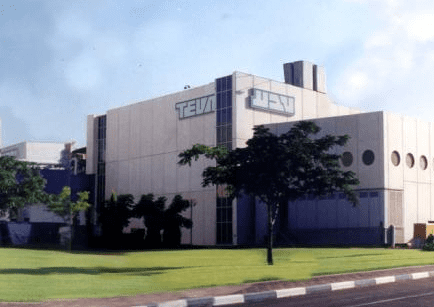
Teva considers up to 27 plant closures
pharmafile | May 13, 2014 | News story | Manufacturing and Production, Sales and Marketing | Copaxone, Nerventra, Teva, cuts, generics
Teva is to close 11 of its production sites, with another 16 facilities ‘under evaluation’, as part of a major plan to curb spending.
The Israeli firm is targeting $1 billion in expenses cuts by the end of the year, with that figure set to reach $2 billion by 2017.
In a call with investors this month, Teva chief executive Erez Vigodman said: “We are in a process of resigning significant capacity to local facilities in our network.” He added: “There is a lot of value we can unlock from getting our house in order by delivering on our cost reduction programme.”
The firm has not confirmed which of its facilities will face the axe, although sites in Pennsylvania and California have already been earmarked for sale.
It has been a mixed year so far for the world’s largest generics manufacturer. In January, European regulators rejected its new MS treatment Nerventra (laquinimod) over possible cancer risks.
A few weeks later, US authorities launched an investigation into alleged illegal marketing practices by the company in relation to two of its drugs, Copaxone (glatiramer acetate) for MS and Azilect (rasagiline) for Parkinson’s disease.
There was some good news, however, when US regulator the FDA granted approval to a new, higher-dose version of Copaxone. The drug has been a major success for Teva, with global sales of nearly $4 billion in 2012 – and its new treatment form will enjoy patent protection until 2030.
Nevertheless, the approaching generic erosion of the established, 20mg version of Copaxone remains of great concern to Teva.
During the investors’ call, Vigodman confirmed that an appeal would be heard at the US Supreme Court later this year as part an ongoing attempt to block generic versions of the drug entering the market.
Vigodman was bullish on his firm’s prospects in the court action, saying Teva would ‘aggressively defend’ its intellectual property.
He also discussed plans for imminent expansion in developing territories, commenting: “You will see us in the course of the next two years start moving to expand our footprint in key emerging markets.”
Summarising his company’s immediate business priorities, Vigodman said: “Teva must regain focus on the generic business with strong emphasis on portfolio selection and management on R&D and innovation on market and product profitability.”
Hugh McCafferty
Related Content

Teva’s Ajovy significantly reduces migraine in children and adolescents
Teva’s Ajovy (fremanezumab) has demonstrated significant reduction in monthly migraine and headache days in children …

Teva announces positive results from trial of AJOVY for migraine
Teva has announced positive results from the phase 4 PEARL study of AJOVY (fremanezumab), its …

Sanofi and Teva partner for development of inflammatory bowel disease treatment
Sanofi and Teva Pharmaceuticals have announced that they will collaborate for the co-development and co-commercialisation …





